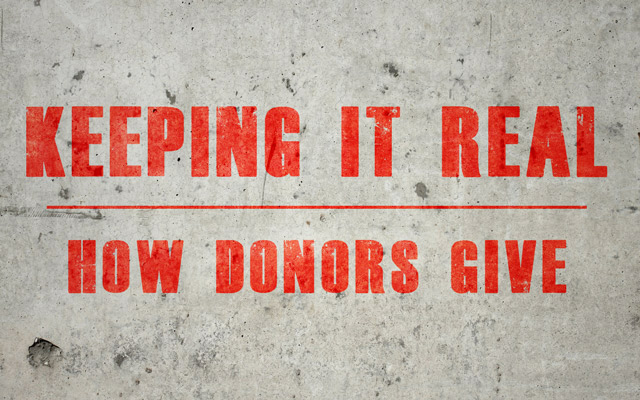Acquiring donations can sometimes feel like an enigma. You’re requiring someone to give you money with no physical commodity being exchanged. That is a real leap of faith. Let’s look at this from the prospective of a potential donor and see if we can find some core consistencies that lead to a gift.
Make Your Motive Clear
When speaking to a potential donor, make your point as early as possible. The last thing you want to do is surprise someone when they didn’t expect to be asked for a donation. If you end up surprising them, it will feel like a bait-n-switch. Trust is the most imperative aspect to any relationship, so don’t lose it right out of the gate. Instead, on the first contact, express your interest in fundraising and that you’d like them to be a potential supporter. Every donor has a preferred way to be “asked”, some like it right from the hip, some like a little finesse. It is your job to find that out by relating to them. Either way, transparency in your motive will be one of the biggest strengths you have to build a foundation for a long and prosperous future with your potential donor.
Get Them Involved
It is almost a guarantee that if a potential donor has a powerful hands-on experience with your mission they will be connected for life. Often when you are approaching a new donor it can feel a little presumptive to ask for their wallet. A great tactic is to find out if the potential donor wants to volunteer for your cause or help out in some way. Working from the ground up, you can cultivate a more meaningful relationship. Chances are you will also create an ambassador along the way. I mean you do your job for a reason right? It may feel like a hefty time investment in the beginning, but in the long term these types of donors are invaluable. They network for your, champion for you and yes they dig deeper for their donations. You don’t have a structured volunteer management program yet? No matter- schedule a monthly open house with your ED or CEO to answer questions, schedule tours, ask them to review a communication piece or lend their professional expertise from a distance. There are lots of ways to creatively allow a donor to get their toes wet in your work. Connecting them to the right fit is a matter of listening to their passions to see where a natural fit is.
Donors Want To Be Heard
Which brings us to our next point. When someone donates they have invested in making a difference in the lives of who you serve. That means they might have opinions or passions already formulated. Ask them for those! It is fundraising gold to have your finger on the pulse of what matters to your donors, what they would like to see differently, and why your specific cause moved them. They don’t want to be appreciated solely for their financial contribution, they want to matter to the work you are accomplishing. Donating, for the most part, is an emotive response to a need. If you are not taking the time to listen to your donors perspective of your work, you will have no idea how to communicate to their values. Bonus points if you can actually utilize their ideas and shape an outcome from it!
Don’t Do All the Talking
This happens all the time! Soliciting a donation can feel odd, so maybe it is nerves that cause fundraising professionals to launch into a spiel about their organization in one long-winded breath. Honestly, by doing that you have already told your donor a lot about how you value them. When you are cultivating a donor relationship or gift, think of it like a date. It is bad form to DO ALL THE TALKING. Prepare ahead of time questions you want to know from them. Why are they interested in youth literacy? What do they see the biggest need being? Do they have ideas on how the issue can be addressed? Engage them in their passion. See their face light up, and then you know where the motivation of their investment and interest dwells. Drowning them out will make them feel solicited, and that may turn over a donation, but it will sour the relationship. *When trying to conversationally give them information about your organization, start by asking them: Do you have any questions for me? That way you don’t over-load them with an un-consumable amount of information, leaving their questions unanswered.
By stepping back from the fundraising formulas and “elevator-pitch” tactics, you can really see that successful donor cultivation is really just about connecting authentically with another concerned person.

